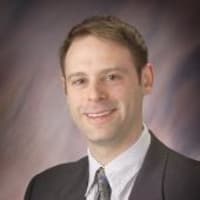Password Reset
Forgot your password? Enter the email address you used to create your account to initiate a password reset.
Forgot your password? Enter the email address you used to create your account to initiate a password reset.

Dr. Michael Gimbel is an Assistant Professor in the University of Pittsburgh Department of Plastic Surgery.
Dr. Michael Gimbel is an Assistant Professor in the University of Pittsburgh Department of Plastic Surgery. His practice encompasses the entire broad field of Plastic Surgery, including general reconstructive surgery, aesthetic surgery, breast surgery, microsurgery, and some hand surgery. He has a particular interest in breast reconstruction, including microsurgical perforator flap reconstruction (DIEP, TUG, GAP), nipple-sparing reconstruction, immediate implant one-stage reconstruction, and oncoplastic “breast-sparing” reconstruction. He practices primarily at Magee-Womens Hospital and Shadyside Hospital.
Dr. Gimbel completed his undergraduate studies at Cornell University in Ithaca, New York and earned his medical degree from Duke University School of Medicine. He completed his general surgery residency at the University of Pittsburgh. During his training he dedicated three years to full-time research as an NIH-funded fellow at the University of California-San Francisco (UCSF) Would Healing Lab under the tutelage of the renowned Dr. Thomas Knighton Hunt. His basic science research examined fundamental biological steps in wound healing. He also worked on medical information technology and created a grant-funded international telemedicine network between various Pacific Rim nations for the treatment of diabetic foot ulcers. After completing general surgery residency, Dr. Gimbel pursued subspecialty training in plastic surgery and finally a fellowship in microsurgery, both at the University of California-Los Angeles (UCLA).
Dr. Gimbel joined the faculty at the University of Pittsburgh in 2006, where he serves as program director for the Microsurgery Fellowship. His research interests include clinical research of breast reconstruction outcomes, free flap monitoring technologies, and novel techniques in free tissue transfer.